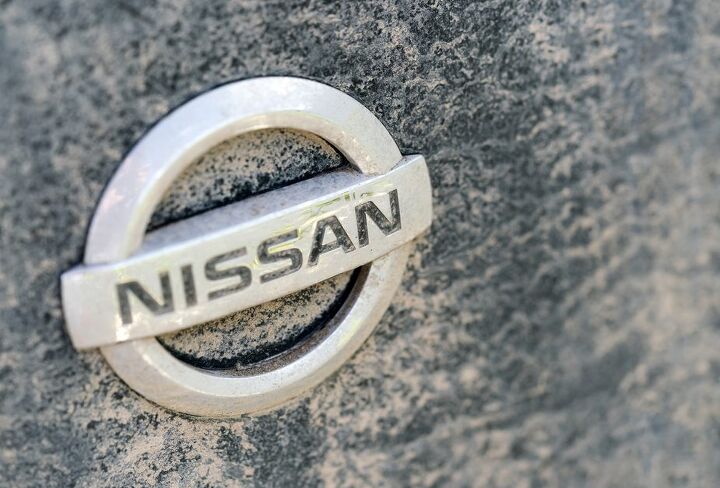Nissan's Financial Report Worse Than Expected

On Wednesday, we reported Nissan was preparing a financial report that was presumed to involve quarterly profit falling by around 90 percent — necessitating roughly 10,000 job cuts. At the time, Nissan gave some vague confirmation that the estimates were accurate while halfheartedly attempting to refute them.
However, when the official numbers came out on Thursday, the reality was worse than initially assumed. Nissan reported an almost 99-percent drop in operating profit in the latest quarter, citing falling sales in every major market except China. Rather than 10,000 job cuts, it’ll require 12,500.
From Nissan:
The company is moving quickly to optimize cost structures and manufacturing operations, while also enhancing brand value, steadily refreshing its lineup and achieving consistent growth globally, including in the U.S.
To improve its overall utilization rate, Nissan will reduce its global production capacity by 10 [percent] by the end of fiscal year 2022. In line with production optimizations, the company will reduce headcount by roughly 12,500. Furthermore, the company will reduce the size of its product lineup by at least 10 [percent] by the end of fiscal year 2022 in order to improve product competitiveness by focusing investment on global core models and strategic regional models.
While some of these initiatives are already underway, the company expects that substantial improvements in its performance will take time.
During the announcement’s press conference, CEO Hiroto Saikawa admitted the results were worse than expected but reminded the media that the company’s restructuring efforts were already underway. Of the 12,500 job cuts, 4,800 had already been announced earlier in the year.
An estimated 6,400 of the total staffing reductions are to commence immediately. Roughly 1,500 will take place in the United States, with another 1,000 in Mexico and 830 in Japan. The rest are spread out between the United Kingdom, Spain, Indonesia, and India.
Those reductions are supposed to be finalized before April of 2020. Saikawa said to expect the remaining layoffs to wrap in 2023. Details on those were scant, however.
Nissan’s net income dropped 95 percent to 6.4 billion yen ($59.3 million) during the last quarter. Revenue slid 13 percent to 2.37 trillion yen ($21.97 billion) in the three months ending in June, with global retail volume declining by 6.0 percent. The automaker addressed the generally negative trend within the industry claiming it’s own profitability was “negatively impacted by the decrease in revenues and external factors such as raw material costs, exchange rate fluctuations and investments to meet regulatory standards.”
Its current goals involve improving capacity utilization worldwide and weening itself off fleet sales and heavy incentive spending in the United States. Saikawa said it would take some time for the changes to take effect.
[Image: Anton Watman/Shutterstock]

A staunch consumer advocate tracking industry trends and regulation. Before joining TTAC, Matt spent a decade working for marketing and research firms based in NYC. Clients included several of the world’s largest automakers, global tire brands, and aftermarket part suppliers. Dissatisfied with the corporate world and resentful of having to wear suits everyday, he pivoted to writing about cars. Since then, that man has become an ardent supporter of the right-to-repair movement, been interviewed on the auto industry by national radio broadcasts, driven more rental cars than anyone ever should, participated in amateur rallying events, and received the requisite minimum training as sanctioned by the SCCA. Handy with a wrench, Matt grew up surrounded by Detroit auto workers and managed to get a pizza delivery job before he was legally eligible. He later found himself driving box trucks through Manhattan, guaranteeing future sympathy for actual truckers. He continues to conduct research pertaining to the automotive sector as an independent contractor and has since moved back to his native Michigan, closer to where the cars are born. A contrarian, Matt claims to prefer understeer — stating that front and all-wheel drive vehicles cater best to his driving style.
More by Matt Posky
Latest Car Reviews
Read moreLatest Product Reviews
Read moreRecent Comments
- 1995 SC The sad thing is GM tends to kill cars when they get them right, so this was probably a pretty good car
- Mason Had this identical car as a 17 year old in the late 90's. What a ball of fun, one of many I wish I still had.
- FinnEss At my age, sedans are difficult to get into without much neck and hip adjustment.I apologize sincerely but that is just the way it is. A truck is my ride of choice.Pronto
- Ajla The market for sedans is weaker than it once was but I think some of you are way overstating the situation and I disagree that the sales numbers show sedans are some niche thing that full line manufacturers should ignore. There are still a sizeable amount of sales. This isn't sports car volume. So far this year the Camry and Civic are selling in the top 10, with the Corolla in 11 and the Accord, Sentra, and Model 3 in the top 20. And sedan volume is off it's nadir from a few years ago with many showing decent growth over the last two years, growth that is outpacing utilities. Cancelling all sedans now seems more of an error than back when Ford did it.
- Duties The U.S . would have enough energy to satisfy our needs and export energy if JoeBama hadn’t singlehandedly shut down U.S. energy exploration and production. Furthermore, at current rates of consumption, the U.S. has over two centuries of crude oil, https://justthenews.com/politics-policy/energy/exclusive-current-rates-consumption-us-has-more-two-centuries-oil-report.Imagine we lived in a world where all cars were EV's. And then along comes a new invention: the Internal Combustion Engine.Think how well they would sell. A vehicle HALF the weight, HALF the price that would cause only a quarter of the damage to the road. A vehicle that could be refueled in 1/10th the time, with a range of 4 times the distance in all weather conditions. One that does not rely on the environmentally damaging use of non-renewable rare earth elements to power it, and uses far less steel and other materials. A vehicle that could carry and tow far heavier loads. And is less likely to explode in your garage in the middle of the night and burn down your house with you in it. And ran on an energy source that is readily extracted with hundreds of years known supply.Just think how excited people would be for such technology. It would sell like hot cakes, with no tax credits! Whaddaya think? I'd buy one.


































Comments
Join the conversation
Hands down, the best car I've ever owned was a 1996 Maxima GXE. It was fast, quiet, handled decent, good gas mileage, comfortable. Not to mention dead-reliable. Put 300k on it when the tinworm got the radiator support and I figured it didn't owe me a cent.
No layoffs at the Nissan plant here in Smyrna, Tn.